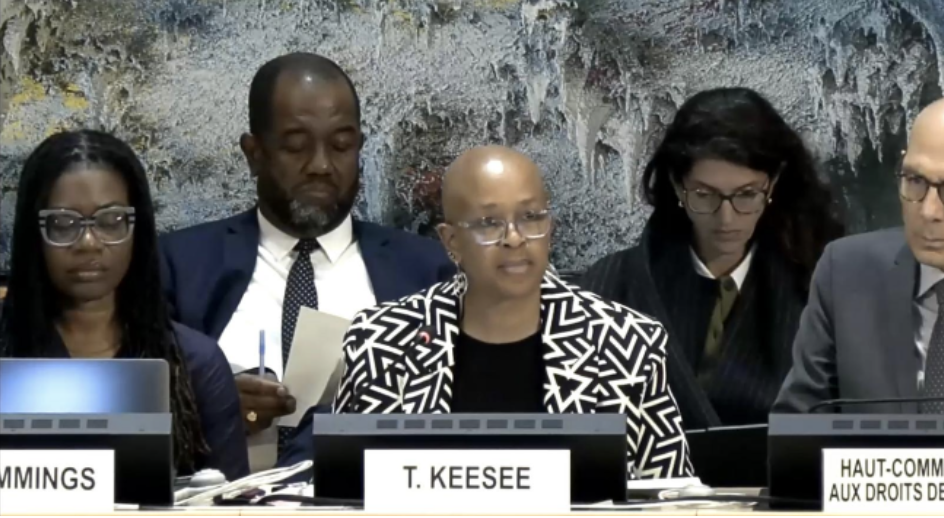
Repairing historical injustices: key to dismantling systemic racism
The 60th Session of the Human Rights Council
8 September – 8 October 2025
Item 9: Enhanced interactive dialogue with the High Commissioner and the International Independent Expert Mechanism to Advance Racial Justice and Equality in Law Enforcement
1 October 2025
By Léa Farge / GICJ
Executive Summary
On 1 October 2025, during the 36th meeting of its 60th session, the UN Human Rights Council held an enhanced interactive dialogue. During this meeting, the High Commissioner for Human Rights and the representative of the Expert Mechanism presented the recommendations outlined in their respective reports to combat systemic racism and discrimination against Africans and people of African descent. It served as a platform for States and NGOs to exchange views and share best practices aimed at building societies free from racial discrimination and violence.
The discussions reiterated that the legacies of slavery, the transatlantic slave trade, and colonisation have left deep and lasting scars, not only in economic terms, through systemic inequality, impoverishment, and land dispossession, but also at institutional, cultural, and symbolic levels. These historical injustices continue to shape contemporary systems and structures, which in turn sustain patterns of racial inequality, exclusion, and violence.
In this context, reparatory justice was highlighted as a vital mechanism for addressing these enduring harms and dismantling the systems that perpetuate systemic racism. It refers to the process of making amends for historical wrongs by providing redress for the physical, material, and moral harm suffered by individuals, communities, and nations. At its core, reparatory justice seeks not only to correct past injustices but also to restore dignity and promote healing for those who continue to bear the consequences of these wrongs.
States and civil society organisations taking part in the dialogue unanimously recognised the imperative of reparatory justice as a central response to the enduring legacies of slavery. There was a strong emphasis on the fact that reparatory processes must not be symbolic, but rather developed in genuine partnership with affected communities. This means ensuring their full participation, centring their voices, and recognising their agency in shaping the measures intended to address both historical harm and present-day inequalities.
Delegates and NGOs emphasised that reparatory justice must encompass a comprehensive set of measures, including official apologies, financial compensation, institutional and legal reforms, memorialisation, and the decolonisation of education systems. These actions were framed not merely as gestures of goodwill, but as necessary conditions for restoring dignity, building trust, and advancing toward more just, inclusive, and equitable societies.
Geneva International Centre for Justice (GICJ) calls for the full implementation of the report’s recommendations and for former colonial powers to acknowledge the profound harm inflicted upon Africans and people of African descent, as well as the lasting consequences of those injustices. We urge all States to strengthen their legal and institutional frameworks to ensure the protection, promotion, and full realisation of the rights of people of African descent, paving the way toward a truly equal and just society.
Background
The cases of Luana Barbosa dos Reis Santos and João Pedro Mattos Pinto (Brazil), Adama Traoré (France), Kevin Clarke (United Kingdom), and George Floyd and Breonna Taylor (United States of America), all victims of police violence, starkly illustrate the persistence of racial injustice and systemic racism worldwide. This entrenched discrimination extends beyond policing into the criminal justice system, healthcare, education, housing, employment, and political representation, all of which are direct legacies of colonialism.
All these forms of discrimination must end urgently. Eighty years after the United Nations Charter reaffirmed the equal rights and inherent dignity of all human beings, and sixty years after the adoption of the International Convention on the Elimination of All Forms of Racial Discrimination, it is high time for States to acknowledge their historical responsibility for slavery and colonialism, alongside remedying its lasting consequences.
The United Nations has recognised slavery and the transatlantic slave trade as crimes against humanity and has therefore called for concrete measures to address their lasting impacts. These efforts are part of the Second International Decade for People of African Descent, which spans from January 1, 2025, to December 31, 2034. This decade aims to strengthen global action towards justice and development for people of African descent and to promote a more just and inclusive future where their rights and aspirations are fully acknowledged.
To highlight this goal, it is important to refer to the first Decade, during which over 30 countries adopted new laws and policies to combat racial discrimination and address the challenges faced by people of African descent. For instance, some nations have reassessed public spaces, removing or reinterpreting statues and place names linked to figures involved in the transatlantic slave trade. Additionally, museums in several European countries have begun examining and addressing the historical context of their collections and their ties to colonialism and slavery.
Finally, the measures introduced in the Durban Declaration and Programme of Action, which was adopted by Member States at the World Conference Against Racism, Racial Discrimination, Xenophobia and Related Intolerance, held by the United Nations in 2001, must be fully respected and implemented by all States. The DDPA asserted that the act of remembering past crimes and injustices plays a crucial role in facilitating reconciliation and shaping societies committed to justice, equality, and mutual solidarity.
`
Summary of the Expert’s Report
This report is submitted pursuant to the Human Rights Council resolution 47/21, entitled “Promotion and protection of the human rights and fundamental freedoms of Africans and of people of African descent against excessive use of force and other human rights violations by law enforcement officers through transformative change for racial justice and equality.” The resolution requests the High Commissioner to prepare an annual written report on systemic racism, to be accompanied by the report of the International Independent Expert Mechanism to Advance Racial Justice and Equality in Law Enforcement, and to be presented and discussed before the Human Rights Council.
The report is a call for the development of reparatory justice addressing the legacies of colonialism. The report presents reparatory justice not only as reparation and compensation measures, but as a fair judicial process which aims to dismantle the ongoing impact of racism in our societies while meeting the demands for accountability.
Effective and fair reparatory justice requires inclusive and context-specific consultations with affected communities, centring people of African descent, especially women and children, in the design and implementation. Indeed, the failure to integrate the victims into this judicial process will undermine its legitimacy and even worsen the situation. In addition, the United Nations High Commissioner for Human Rights emphasised that reparatory justice requires an intersectional and intergenerational analysis based on international human rights law.
Firstly, the report highlights the role of the States in implementing a fully comprehensive reparatory justice approach by adopting measures such as public apologies, reparative measures in multiple forms (restitution, compensation, rehabilitation, satisfaction, guarantees of non-repetition), and structural reforms aimed at dismantling institutional legacies.
Secondly, the United Nations High Commissioner for Human Rights calls for the participation of other stakeholders to comply with and promote reparatory justice, such as academic institutions and museums, religious groups, business enterprises and civil society movements. For example, the report acknowledges that NGOs and organisations led by people of African descent have played a central role in defending and promoting reparatory justice, often stepping in where State action is lacking.
Thirdly, the report presents structural issues related to reparatory justice, which require more reflection. It acknowledges that there are contested views on whether States have legal obligations under current law to provide reparations for slavery or colonialism, noting challenges in attributing responsibility across time, statutes of limitations, and deceased actors. However, it asserts that legal obstacles are not absolute and that new frameworks and doctrines must be considered.
In addition, the United Nations High Commissioner for Human Rights highlighted the link between reparatory justice and the environmental crisis, emphasising how colonialism gave rise to extractive economic systems that have contributed to today’s ecological challenges and disproportionately affect African communities and people of African descent. The compensation and reparation of climate injustice must be part of a broader, holistic and comprehensive reparatory justice.
The report highlights how colonialism imposed structural debt burdens on formerly colonised States and presents debt cancellation or reform of the global financial architecture as necessary reparatory measures.
Fourthly, the United Nations High Commissioner for Human Rights presented OHCHR’s own work to advance racial justice and non-discrimination. The report affirms that OHCHR has established safe and inclusive spaces for consulting, listening to, and engaging with Africans and people of African descent, while also advising on policy development and strengthening regional and civil society networks.
In conclusion, the report acknowledges that although some States have adopted reparatory justice measures, these are often inadequate, symbolic, and subject to contestation. It is the duty of political officials to create effective, fair and comprehensive responses to call for reparatory justice, depending on the demands and the particularity of every situation. The United Nations High Commissioner for Human Rights called on States to fully implement the report’s recommendations and to comply with their human rights obligations to advance the creation of a society free from any form of racial discrimination. In the end, the report highlighted that national measures to combat racism must be complemented by initiatives involving inter-state, cross-boundary cooperation, including with the African Union and communities in former colonies.
Summary of the Interactive Dialogue
Opening Statements
The High Commissioner for Human Rights, Volker Türk, made the opening statement, stressing that colonialism and slavery continue to have a strong impact on our societies, as they fuel inequalities and perpetuate racism against Africans and people of African descent. He stressed that they are still facing blatant injustices regarding access to work, healthcare services, policing and education.
He declared that any step toward implementing laws and policies combating racism must involve taking responsibility for the legacies of colonialism and enslavement. He highlighted that reparatory justice is about exposing and coming to terms with the truth of our common history, not erasing it, ignoring it, or rewriting it.
He then gave examples of various countries that implemented measures of reparatory justice, such as apologies and acknowledgement of the harm perpetrated and commemorative days or months. He described these actions as important steps forward; however, he emphasised that no State has yet done enough to adequately address or repair the harms suffered by Africans and people of African descent.
Mr. Türk identified five areas that require urgent attention and that will help move the needle on reparatory justice: political commitment, authentic and continuous consultation with affected communities, international cooperation, full support for civil society organisations, and global reforms to help correct historical exclusions.
He concluded by highlighting that reparatory justice is about shaping a fair and equal future, alongside rebuilding trust among minority communities.

Ms. Keesee, Member of the Independent Expert Mechanism to Advance Racial Justice and Equality in Law Enforcement, stated that “Systemic racism against Africans and people of African descent in the criminal justice system is pervasive, deeply entrenched, and reinforced at every stage from the initial police contact to post-conviction procedures”. She asserted that challenges remain across widespread racial profiling, discriminatory prosecutorial practices, unequal access to fair trial guarantees, and harsher sentencing outcomes, compounded by a lack of legal representation and structural socioeconomic disadvantage. She emphasised that the overrepresentation of Africans and people of African descent in prison reflects the injustice of our judicial system. Ms. Keesee declared that stereotypes portraying Africans and people of African descent as criminals continue to perpetuate an unfair and oppressive judicial system.
She presented the twelve key elements identified in their reports to end systemic racism and discrimination. These elements include, among others, the elimination of racial profiling and discrimination, access to bail and parole, as well as fundamental issues such as adequate training, the use of disaggregated data, and the diversity and representation across the justice chain.
She concluded her statement by thanking Belgium for its cooperation during the visit of the mechanism conducted in their country in June 2025.
Statements of States
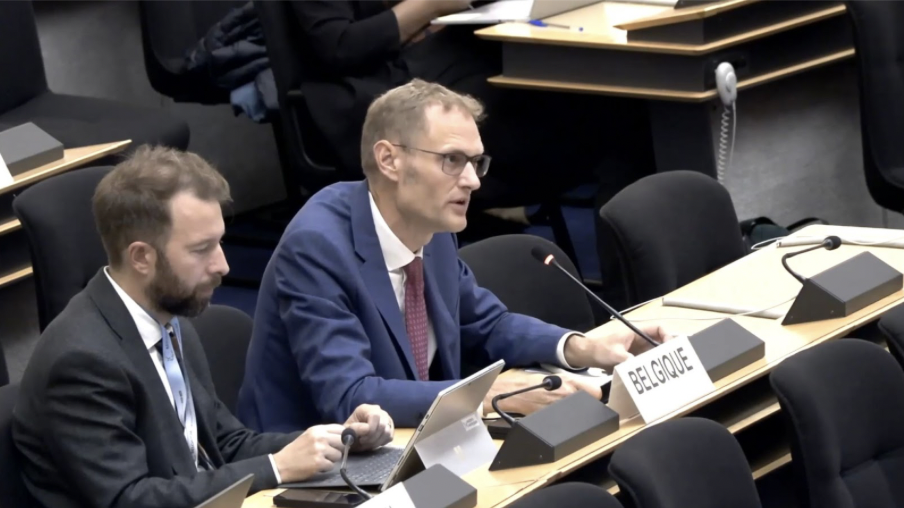
The delegate of Belgium, referring to the report following the expert mechanism’s visit in June 2025, presented his country’s efforts to combat all forms of racism. He pointed out initiatives such as integrating colonial history into school curricula, improving the registration and follow-up of complaints within the police, and strengthening accountability mechanisms. The representative of Belgium emphasised the importance of consulting affected communities to combat racism effectively, which can be done through funding civil society organisations promoting racial justice. He concluded by stressing that the report’s recommendations will be conveyed to all the competent authorities in Belgium.
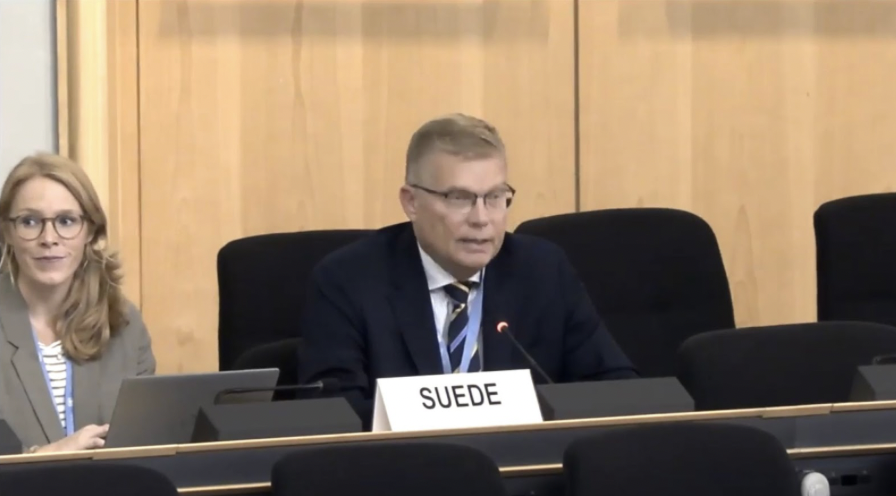
The representative of Sweden, on behalf of the Nordic Baltic countries, stated that “While we cannot undo the injustices of the past, we have a shared responsibility to address their negative legacies”. To that end, the delegate of Sweden emphasised that any action must be guided by a human rights-based approach, grounded in the principles of non-discrimination and respect for individual rights. He highlighted that women, persons with disabilities, and members of the LGBTIQ community face intersecting forms of inequality and discrimination, which must be addressed as an essential part of the broader fight against racism. The delegate stressed that three core principles must be at the heart of the response against systemic racism: inclusion, participation and representation, thus emphasising the key role of reparatory justice in this process.
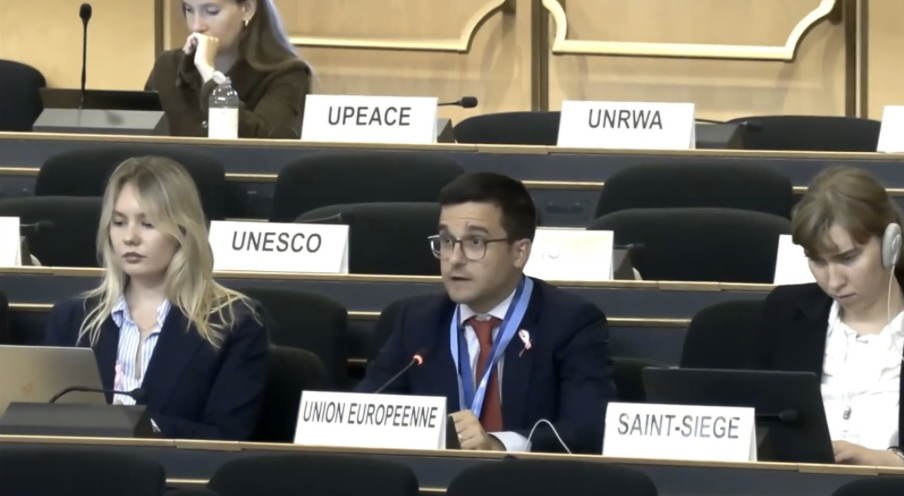
The delegate of the European Union presented the new rules approved by the EU to supplement the Racial Equality Directive, requiring all Member States to provide equality bodies with stronger powers to assist victims of discrimination.
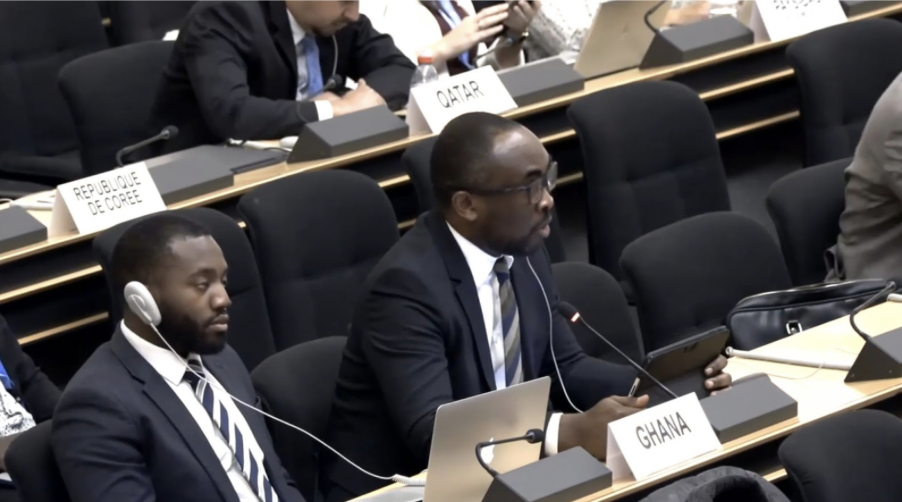
The representative of Ghana, speaking on behalf of the African Group, welcomed the report as an international framework that acknowledges slavery and the slave trade, particularly the transatlantic slave trade, as crimes against humanity. He also condemned the fact that, to this day, no State has fully accounted for the past and present consequences of institutionalised racism, especially those States that continue to benefit from the legacy of slavery and colonialism. Furthermore, he expressed serious concerns about the resurgence of violent manifestations of racism, racial injustice, and xenophobia, fueled by ideologies that are scientifically unfounded and morally indefensible, including white supremacy, as well as extremist, nationalist, and populist movements.
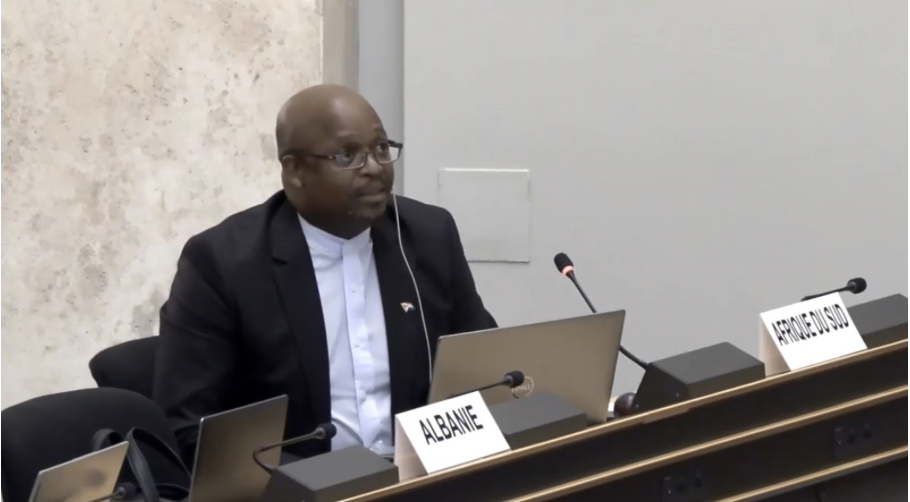
The representative of South Africa stressed that reparatory justice requires a context-specific and intersectional approach. He deplored that 25 years after the adoption of the Durban Declaration and Programme of Action, there is no convergence regarding the question of reparations.
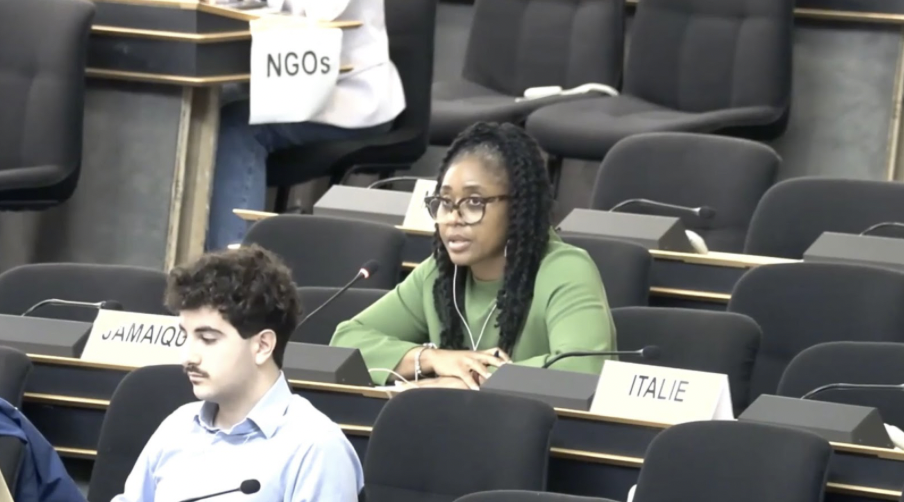
Jamaica asserted that the decolonisation of school curricula and the promotion of a fair history are key elements to achieve racial equality. The delegate of Jamaica to illustrate his stance gave the example of the Reparative Justice Master's Program between the University of the West Indies and the University of Glasgow. She presented education and memorialisation as key elements of reparatory justice. She concluded, stating that “Reparatory justice must be pursued with urgency, purpose, and collective resolve”.
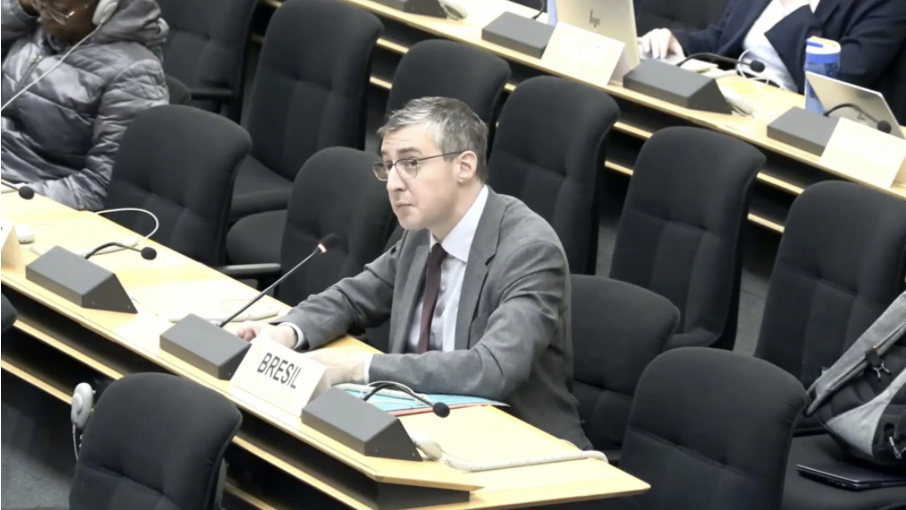
The delegate of Brazil presented his Black Youth Alive program that aims to prevent at-risk black youth from entering the criminal justice system and thus decrease violence and incarceration rates. His final remark was a question for Ms. Keesee: “How can memory and justice be used as tools to reform the criminal justice system?”.
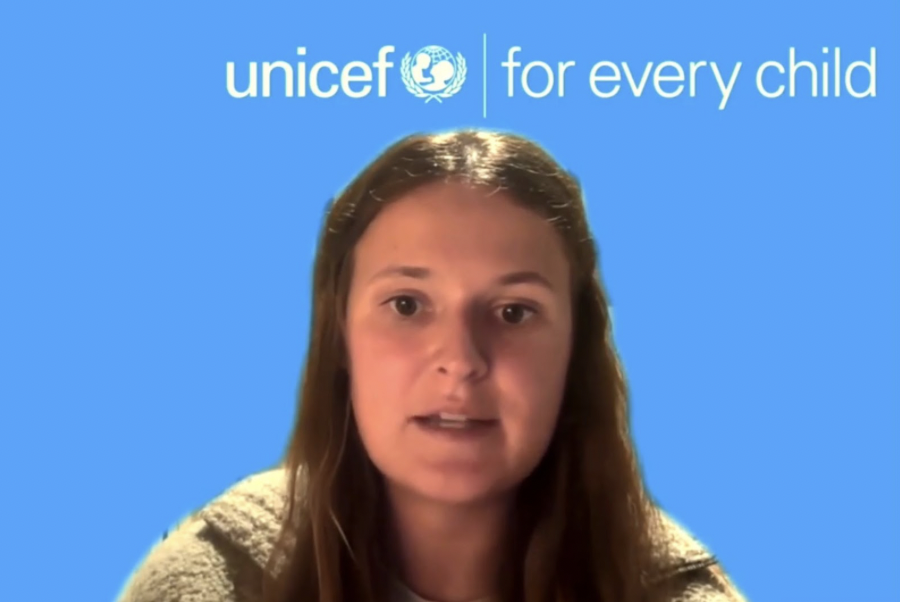
UNICEF stressed that African children and people of African descent face constant serious violations of their rights, such as racial profiling, excessive use of force by law enforcement and unequal access to justice. It stressed that reparatory justice processes can only succeed if States genuinely commit to meaningfully consulting people of African descent throughout their implementation. UNICEF urged all States to fully implement international law and to ensure reparatory justice processes are child-sensitive, intersectional and in accordance with the Convention on the Rights of the Child.
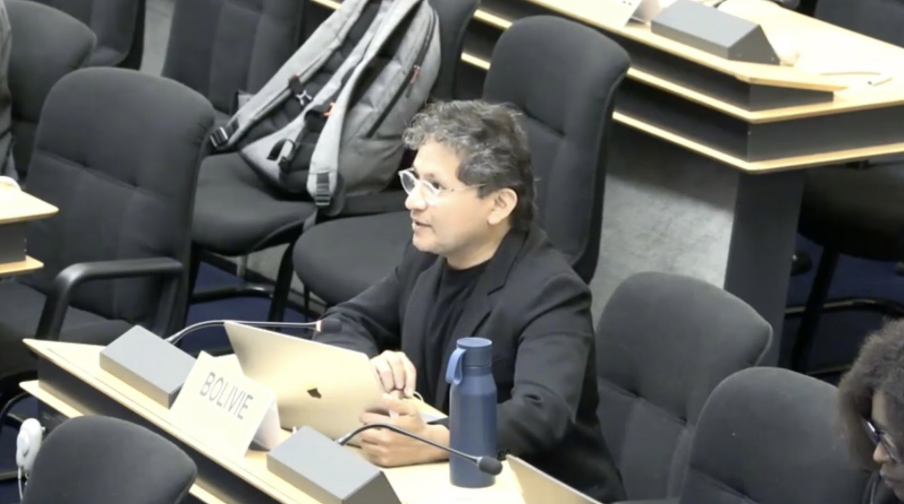
The representative of Bolivia stated that “reparation helps not only victims, it also strengthens society as a whole”, thus demonstrating that erasing the legacies of colonialism will be profitable for all members of society. He underlined that contemporary societal issues, such as environmental injustice, underdevelopment, and economic exclusion, are deeply rooted in the legacy of colonialism.
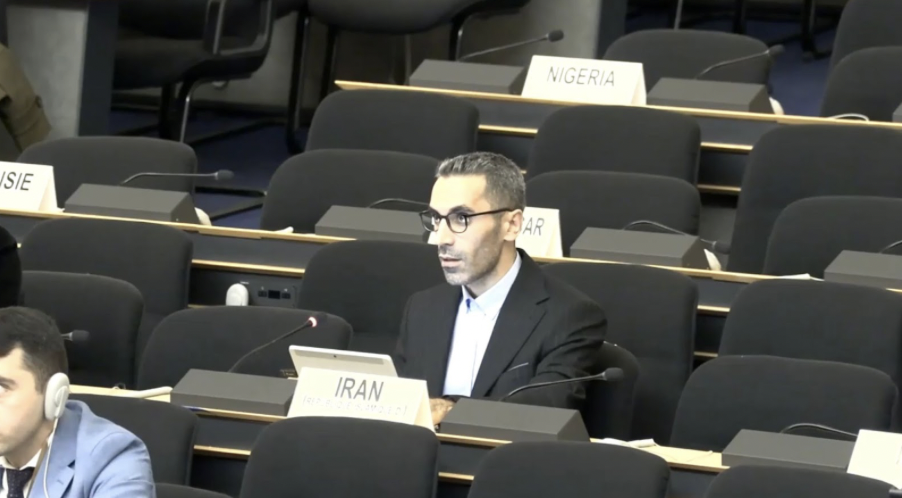
Iran emphasised the importance of establishing comprehensive reparatory mechanisms that include independent oversight, effective remedies, financial compensation, public apologies, and systemic reforms, in order to provide just and adequate reparations for people of African descent and the descendants of slavery victims, as acknowledged in the UN expert statements.
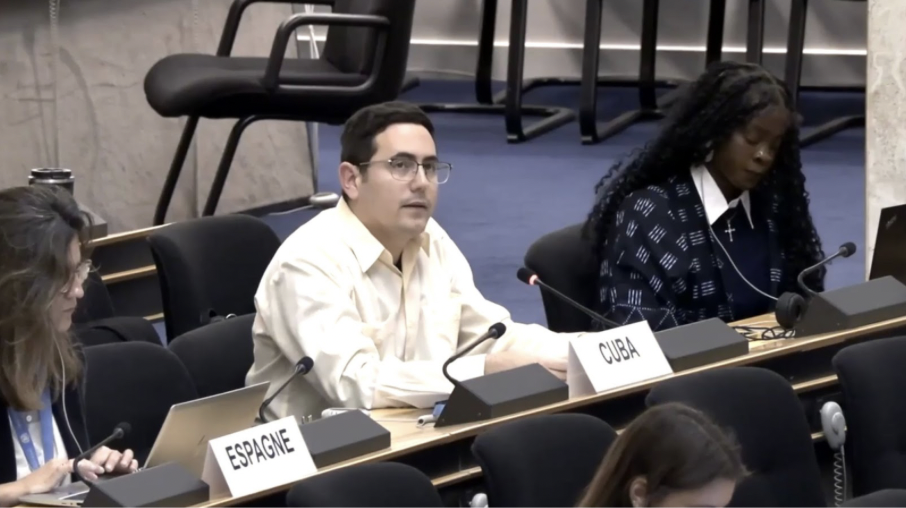
Cuba denounced the ongoing discrimination and racism experienced by people of African descent in the United States, particularly highlighting their disproportionately high incarceration rates compared to the rest of the population. The representative of Cuba indicated that “people of African descent represent 33% of detainees in the US, although they represent only 12.4% of the population”. Cuba indicated that sentences against black children in the US are much harsher than those against white children, and expressed its concern about the fact that the US has not ratified the Convention on the Rights of the Child.
Statements of National Human Rights Institutions and Non-Governmental Organisations
Finally, participating NGOs called for States with legacies of colonialism to implement the 12 recommendations made in the report of the international independent mechanism to ensure the protection of Africans and people of African descent, particularly those facing multiple and intersecting forms of discrimination. NGOs also pressed for the full implementation and respect of the Durban Declaration and Programme of Action. They urged States that have profited from the enslavement and colonisation of Africans, people of African descent, and indigenous peoples to rectify these past injustices and their lasting consequences. Representatives of NGOs called on the States to implement their migration policies in a manner that respects human rights and non-discrimination principles. In the end, they stressed the essential need for the consultation and involvement of Africans and people of African descent to launch an equitable reparatory process.
Concluding remarks
To conclude, Mr. Kamara, Representative of Civil Society, appealed to reclaim stolen assets, reeducate communities, repair the systems and reform those that have been broken, resist, rebuild and reimagine a future that is built on justice, accountability, healing and dignity.
Ms. Keesee stated that “Systemic racism is not an accident of today but a direct legacy of colonialism and enslavement. Nor is it a manifestation of the misapplied commentary on wokeness”. She emphasised that it is through research and disaggregated data from community members, municipal and State agencies, and scientists that all stakeholders recognise dismantling systemic injustice is not merely a question of fairness but represents a fundamental act of reparatory justice for centuries of historical harm.
At the close of her remarks, she reminded that given the serious financial crisis the United Nations is facing, States must ensure that oversight mechanisms are adequately funded to effectively carry out their mandates and support affected communities.
The Head of the Service of the Rule of Law, Equality and Non-Discrimination from the Office of the High Commissioner of Human Rights stressed the fundamental role played by the independent experts and the human rights defenders in the successful global advocacy for reparatory justice. He called on States to engage in the elaboration of a United Nations declaration on the respect, protection and fulfilment of the human rights of people of African descent.
Finally, and to a larger extent, he required that all States respect the recommendations issued by the expert mechanisms, especially the 12 key elements for a criminal justice system free from racism, alongside respecting their obligations under international human rights law.
Position of Geneva International Centre for Justice
Geneva International Centre for Justice (GICJ) calls for strengthening collaboration among governments, civil society, and regional organisations to establish a system of compensation for people of African descent, in response to the lasting legacies of colonialism, slavery, apartheid, and genocide.
We urge States to fully implement and uphold the International Convention on the Elimination of All Forms of Racial Discrimination, the Durban Declaration and Programme of Action, and the recommendations of the report, as concrete demonstrations of their commitment to racial justice.
We emphasise the importance of adopting an intersectional approach to reparatory justice, one that explicitly acknowledges how race intersects with gender, sexual orientation, gender identity, class, disability, age, and other aspects of identity.
We call on States to actively consult affected communities and engage in meaningful dialogue with civil society organisations, ensuring that their demands and perspectives are fully considered in the development of a fair, inclusive, and equitable system of reparatory justice.
Finally, GICJ maintains that building a truly inclusive global society, one that upholds the rights and dignity of all individuals, regardless of their origin or race, can only be achieved if former colonial powers fully acknowledge and take responsibility for their historical wrongdoings. Only through recognition, restitution, and reparations can a just future be forged, one rooted in respect for human dignity.
#HRC60 #ReparatoryJustice #RacialJustice #UNHumanRightsCouncil #PeopleOfAfricanDescent #DurbanDeclaration #ColonialLegacy #HumanRightsForAll




